#Leipzig Radio Chorus
Explore tagged Tumblr posts
Text
Sir Simon Rattle (b.1955)
Simon Rattle rose to international prominence during the 1980s and 1990s, while music director of the City of Birmingham Symphony Orchestra (1980–1998). He was principal conductor of the Berlin Philharmonic from 2002 to 2018 and music director of the London Symphony Orchestra from 2017 to 2023. Rattle has been chief conductor of Bavarian Radio Symphony Orchestra since September 2023. Among the…
#Bavarian Radio Chorus#Berlin Philharmonic Orchestra#Carl Orff#Carmina Burana#City of Birmingham Symphony Orchestra#Classical Music#Edward Elgar#Enigma Variations#Fortuna imperatrix mundi#George Gershwin#Gustav Mahler#Harolyn Blackwell#Leipzig Radio Chorus#London Symphony Orchestra#O Fortuna#orchestra#Paul Archibald#Porgy and Bess#RTHK Radio 3#Rundfunkchor Berlin#Simon Rattle#Summertime#Symphony No 8
0 notes
Text
Music in Our flag means death s2
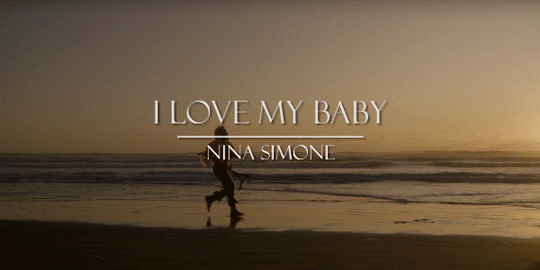
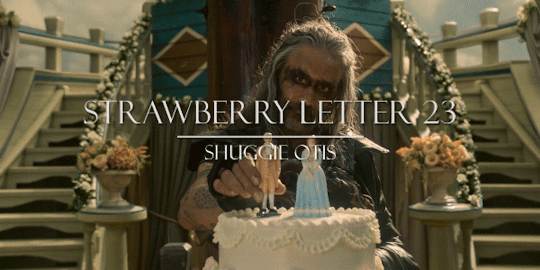

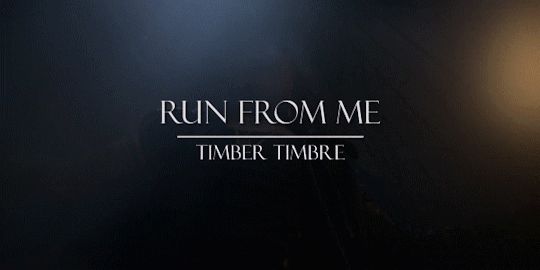

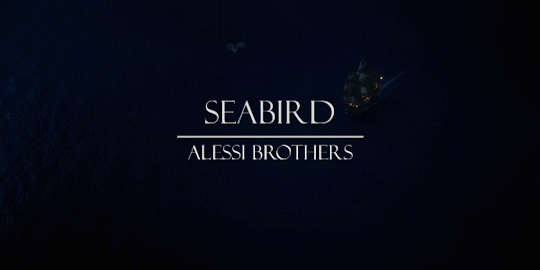
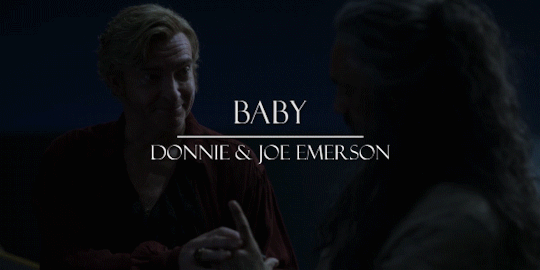
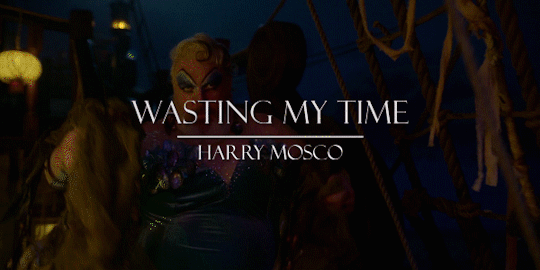

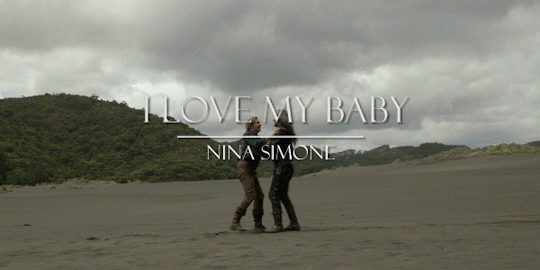



I Love My Baby - Nina Simone
Strawberry Letter 23 - Shuggie Otis
Pygmy Love Song - Francіs Bebey
Run From Me - Timber Timbre
This Woman’s Work - Kate Bush
SeaBird - Alessi Brothers
Baby - Donnie & Joe Emerson
Wasting My Time - Harry Mosco
La Vie En Rose - Con O'Neill
I Love My Baby - Nina Simone (2nd time)
Roads To Moscow - Al Stewart
That’s All Right - Laura Rivers
The Times They Are A-Changin’ - Nina Simone
Music in season 1:
#music plays such an important part in making ofmd so amazing#con's rendition of la vie en rose is the best thing that ever happened and i need the full version#our flag means death#ofmd#ofmd soundtrack#ofmd spoilers#blackbonnet#gentlebeard#my post
3K notes
·
View notes
Photo

In 1991, Philips Classics released The Complete Mozart Edition, 45 themed volumes and, if put together, made up Mozart’s complete compositions, from KV 1 to 626. It was originally released in 45 different volumes, which I’ll list now.
Vol. 1: Early Symphonies
Vol. 2: Symphonies 21-41
Vol. 3: Serenades for Orchestra
Vol. 4: Divertimenti for strings & wind
Vol. 5: Serenades & divertimenti for wind
Vol. 6: Dances & Marches
Vol. 7: Piano Concertos
Vol. 8: Violin Concertos
Vol. 9: Wind Concertos
Vol. 10: Quartets, quintets etc. for wind
Vol. 11: String Quintets
Vol. 12: String Quartets
Vol. 13: String trios and duos
Vol. 14: Piano quintet, quartets, trios etc,
Vol. 15: Violin Sonatas
Vol. 16: Music for 2 Pianos/Piano Duets
Vol. 17: Piano Sonatas
Vol. 18: Piano variations, rondos etc.
Vol. 19: Masses and Requiem
Vol. 20: Litanies/Vespers
Vol. 21: Organ Sonatas & Solos
Vol. 22: Cantatas, oratorios, Masonic music etc.
Vol. 23: Arias, vocal ensembles & canons
Vol. 24: Lieder & Notturni
Vol. 25: Theatre & ballet music
Vol. 26: Apollo et Hyacinthus
Vol. 27: Bastien und Bastienne
Vol. 28: La finta semplice
Vol. 29: Mitridate, re di Ponto
Vol. 30: Ascanio in Alba
Vol. 31: Il sogno di Scipione
Vol. 32: Lucio Silla
Vol. 33: La finta giardiniera
Vol. 34: Die Gartnerin aus Liebe
Vol. 35: Il re pastore
Vol. 36: Zaide/Der Schauspieldirektor
Vol. 37: Idomeneo, re di Creta
Vol. 38: Die Entfuhrung aus dem Serail
Vol. 39: L’oca del Cairo/Lo sposo deluso
Vol. 40: Le nozze di Figaro
Vol. 41: Don Giovanni
Vol. 42: Cosi fan tutte
Vol. 43: Die Zauberflote (The Magic Flute)
Vol. 44: La clemenza di Tito
Vol. 45: Rarities & Surprises
These volumes are performed by many of the world’s greatest ensembles, orchestras, vocalists and instrumental soloists. Up to 2016, Philips Classics was the only label that had recorded Mozart’s complete works, either completed or fragmented. That was, until 2016 when Decca and Deutsche Grammophon merged together and formed Mozart 225: The New Complete Mozart Edition. This was a major breakthrough, because it contained newly discovered works by Mozart, including a notturno for soprano and fortepiano, co-written by Italian composer Antonio Salieri. In 2000, Philips Classics released the Complete Compact Mozart Edition, a large richly illustrated box containing 180 CDs, which in total were all 45 volumes from the earlier release. They were compacted into 17 different boxes, ergo it’s called the Compact Edition. The order goes like this:
Vol. 1: Symphonies
Vol. 2: Serenades/Dances & Marches
Vol. 3: Serenades & divertimenti for strings/solo wind
Vol. 4: Piano Concertos
Vol. 5: Violin/Wind Concertos
Vol. 6: Quintets, quartets & trios
Vol. 7: String Quartets & Quintets
Vol. 8: Violin Sonatas/String trios & duos
Vol. 9: Piano Music
Vol. 10: Masses & Requiem/Organ Sonatas & Solos
Vol. 11: Litanies/Vespers/Cantatas, oratorios, Masonic Music
Vol. 12: Arias, vocal ensembles & canons/Lieder & Notturni
Vol. 13: Early Italian Operas
Vol. 14: Middle Italian Operas
Vol. 15: Late Italian Operas
Vol. 16: German Operas
Vol. 17: Theatre & ballet music/Rarities & Surprises
Philips also released a 25 CD set entitled “The Complete Mozart Edition: Highlight”. This is a set of 25 CDs containing highlights from individual volumes.
Some of the notable performers in the Mozart Edition are as follows:
The Academy of St. Martin in the Fields, London Symphony Orchestra, Mozarteum-Orchester Salzburg, Orchestra of the Royal Opera House, New Philharmonia Orchestra, Berlin Philharmonic Orchestra, Deutsche Bachsolisten, Leipzig Radio Symphony Orchestra, Staatskapelle Dresden, Beaux Arts Trio, Quartetto Italiano, Grumiaux Trio, Academy of St. Martin in the Fields’ Chamber Ensemble, Holliger Wind Ensemble, Netherlands Wind Ensemble, Leipzig Radio Chorus, Choir of the Royal Opera House, The Ambrosian Singers, London Symphony Chorus, Alfred Brendel, Henryk Szeryng, Iona Brown, Irena Grafenauer, Heinz Holliger, Anthony Pay, Jack Brymer, Klaus Thunemann, Peter Damm, Maria Graf, William Bennett, Arthur Grumiaux, Arrigo Pelliccia, Gerard Poulet, Blandine Verlet, Walter Klien, Isabelle van Keulen, Ronald Brautigam, Ingrid Haebler, Ludwig Hoffmann, Paul Badura-Skoda, Mitsuko Uchida, Ton Koopman, Dame Kiri Te Kanawa, Edita Gruberova, Lucia Popp, Thomas Moser, Elisabeth Cooymans, Elly Ameling, Dalton Baldwin, Margaret Price, Brigitte Fassbaender, Barbara Hendricks, Jessye Norman, Luciana Serra, Ingvar Wixell, Wladimiro Ganzarolli, Sir Neville Marriner, Sir Colin Davis, Leopold Hager, Herbert Kegel, Daniel Chorzempa, Sir Alexander Gibson.
4 notes
·
View notes
Text
DEUTSCHE HOFMUSIK Y ALEXANDER GRYCHTOLIK

J. S. BACH: CELEBRATION CANTATAS
El director del conjunto Deutsche Hofmusik, Alexander Grychtolik, ha reconstruido y grabado dos cantatas de J.S. Bach que ahora se publican por primera vez. Se trata de dos piezas conmemorativas, la Cantata de Coronación BWV 205a y la Cantata del Pastor BWV 249a, basada en melodías del Oratorio de Pascua del propio Bach.
La primera cantata fue compuesta por Bach para la coronación de Augusto III de Polonia. El maestro utilizó múisca del drama musical “The Satisfied Aeolus (BWV 205)”, que había escrito en 1725 para el profesor August Friedrich Müller de la Universidad de Leipzig. Por su parte, la llamada Cantata del Pastor fue escrita por Bach en 1725 y fue reconstruida por Grychtolik basándose en los recitativos.
La experiencia de la música antigua como proceso creativo es la principal visión artística de Alexander Grychtolik. Sus actuaciones en conciertos están dedicadas al resurgimiento del arte de la improvisación de Johann Sebastian Bach y sus contemporáneos. Además, trata de profundizar en la comprensión de lo que se denomina “performance históricamente informada” Grycholik nació en Berlín, estudió con Bernhard Klapprott y Frédérick Haas y enseñó la práctica de la improvisación barroca en la Escuela de Música Liszt en Weimar y en la Academia de Música de Frankfurt.
Grychtolik ha pasado muchos años explorando el arte de la composición barroca, un esfuerzo que culminó en una serie de reconstrucciones de renombre internacional de obras vocales de Bach, que fueron transmitidas por cadenas de radio públicas alemanas y europeas. Los críticos elogiaron las reconstrucciones y destacaron su comprensión íntima del estilo de Bach.
En 2008 Grychtolik fundó el conjunto Deutsche Hofmusik, dedicado especialmente a revivir la tradición musical de las cortes barrocas en la Alemania media, sobre todo de las obras ocasionales. El conjunto presenta una selección de proyectos exquisitos de figuras tan destacadas como J. S. Bach, G. P. Telemann y J. F. Fasch. Sus actuaciones vibrantes le dan al conjunto un sonido inimitable y translúcido. Se presenta regularmente en Alemania y en el extranjero y sus actuaciones han sido emitidas por Deutschland Radio, Radio Télévision Suisse (RTS) y Swiss Radio and Television (SRF), entre otras.
CONTENIDO
Blast Lärmen, ihr Feinde! Verstärket die Macht BWV 205a Dramma per Musica for August III. from Poland on the occasion of the royal coronation (Reconstruction: Alexander Grychtolik) 1. Chorus Blast Lärmen, ihr Feinde! Verstärket die Macht (Soprano, Alto, Tenore, Basso) 2. Recitativo Ja, ja! Nunmehro sind die Zeiten da (Basso) 3. Aria Nun blühet das Vergnügen (Basso) 4. Recitativo Und wie? Hat mein August (Tenore) 5. Aria Herr! Dein Eifer vor die Rechte (Tenore) 6. Recitativo Der Untertan ist nun erfreut (Tenore) 7. Aria Lasst uns zum Augusto fliehen (Alto) 8. Recitativo Der Kur-Hut wird vor heute abgelegt (Soprano, Alto) 9. Aria Großer König unsrer Zeit! (Soprano) 10. Recitativo Großmächtigster August! (Soprano, Basso) 11. Aria So lebet, ihr Musen, auf Helikons Höhen (Basso) 12. Recitativo Ihr Söhne, lasst doch künftig lesen (Soprano, Alto, Tenore) 13. Duetto Schwarze Raben werden eher Schwäne haben (Alto, Tenore) 14. Recitativo Wohlan! Wir wollen uns mit viel Ergötzen (Soprano) 15. Chorus Vivat! August, August, Vivat! (Soprano, Alto, Tenore, Basso)
Entfliehet, verschwindet, entweichet, ihr Sorgen BWV 249a („Schäferkantate”) Cantata written for the birthday of duke Christian of Sachsen-Weißenfels (Reconstruction: Alexander Grychtolik) 16. Sinfonia 17. Adagio 18. Duetto: Entfliehet, verschwindet, entweichet, ihr Sorgen (Tenore, Basso/Soprano, Alto) 19. Recitativo: Was hör ich da? (Soprano, Alto, Tenore, Basso) 20. Aria: Hunderttausend Schmeicheleien (Soprano) 21. Recitativo: Wie aber, schönste Schäferin (Soprano, Alto, Tenore, Basso) 22. Aria: Wieget euch, ihr satten Schafe (Tenore) 23. Recitativo: Wohlan! Geliebte Schäferinnen (Alto, Basso) 24. Aria: Komm doch, Flora, komm geschwinde (Alto) 25. Recitativo: Was sorgt ihr viel, die Flora zu beschweren? (Basso) 26. Chorus: Glück und Heil bleibe dein beständig Teil! (Soprano, Alto, Tenore, Basso)
0 notes
Text
So wie jetzt: Die neue Single von Revolverheld ist da!

Revolverheld’s „So wie jetzt“ entstammt dem Album „Zimmer mit Blick“, das im April 2018 erschienen ist. Jetzt erstrahlt der Song in ganz neuem Gewand! Wer sich von der Kraft von Bläsern gern mitreißen lässt, darf jetzt ruhig ein bisschen lauter aufdrehen! https://revolverheld.lnk.to/SoWieJetzt „Wir schauen immer zu den anderen und doch nie übern Tellerrand Geduld ist für uns ein Fremdwort, das ich später googlen kann. Wir sind Individualisten und boosten uns bei Tinder hoch – von einem Job in den nächsten, suchen wir nach dem großen Los. Wann fangen wir zu kämpfen an?“ Keine Ahnung, wie Revolverheld das machen. Diese Band liefert seit Jahren Songs ab, die das Radio liebt, die sich millionenfach verkaufen und dennoch nie Gefahr laufen, flach zu sein. Jeder neue Release beweist ihr herausragendes Händchen für Hooks und bringt Zeilen, die man sich direkt auf ein Poster drucken lassen möchte. So auch die dritte Single aus dem aktuellen Album „Zimmer mit Blick“: „So wie jetzt“. Komplett überarbeitet und mit taghell strahlendem Bläserarrangement ausgestattet, ist der Track von Takt eins an voll da. Was immer uns gerade beschäftigt, welch trübem Gedanken wir eben noch nachgehangen hatten – hat alles keine Chance, wenn „So wie jetzt“ läuft. Revolverheld holen uns ab, wo wir gerade sind, werfen den Ballast in den Kofferraum, reißen das Verdeck auf und spätestens im Chorus wehen die Haare im Wind und wir singen lauthals mit, wovon wir plötzlich völlig überzeugt sind: „So wie jetzt wird’s nie wieder sein. Leb doch einfach im Jetzt, lass dich endlich auf’s Leben ein“. Ja, Mann. Nach Platz 2 für „Zimmer mit Blick“, dem stärksten Entry der Bandgeschichte, und zehn Millionen Video- und Audio-Streams für die Vorgängersingle. Die offizielle Tour startet am 14.03, diese wird Revolverheld durch Arenen in Deutschland und Österreich führen wird. TOURTERMINE 14.03. Emden - Nordseehalle 15.03. Hannover - TUI Arena 16.03. Hamburg - Barclaycard Arena 18.03.Bremen - ÖVB-Arena 19.03. Leipzig - Arena 20.03. Frankfurt - Festhalle 22.03. Stuttgart - Schleyer-Halle 23.03. Nürnberg - Arena Nürnberger Versicherung 24.03. München - Olympiahalle 25.03. Wien- Stadthalle 27.03. Köln - Lanxess Arena 29.03. Oberhausen - König-Pilsener-Arena 30.03. Berlin - Mercedes Benz Arena Links: https://www.revolverheld.de https://www.facebook.com/Revolverheld https://www.instagram.com/revolverheld/ https://twitter.com/revolverheld _____________________________________________________________________________________________________________________________________________________________________ Neuer Revolverheld Clip zu "Liebe auf Distanz" feat. Antje Schomaker Rund 1,8 Millionen Paare in Deutschland führen eine Fernbeziehung - ein leidvolles Schicksal, das auch Johannes Strate nicht erspart geblieben ist. Vier Jahre lang verbrachte der Revolverheld-Frontmann pendelnd zwischen Hamburg und Köln im Auftrag der Liebe. Anlass genug für die Band, sich dieser Thematik in einem Song zu widmen. Heraus kam der Titel „Liebe auf Distanz“, enthalten auf dem aktuellen Album „Zimmer mit Blick“. Veröffentlicht im April 2018, erreichten Revolverheld die höchste Platzierung ihrer Karriere in den Offiziellen Deutschen Albumcharts. Nach der ersten Auskopplung „Immer noch fühlen“ liegt der Song als weitere Single vor – nun in einer Duettversion mit der Sängerin und Songwriterin Antje Schomaker.

„Das Thema ‚Fernbeziehung‘ ist für Johannes sehr persönlich“, erklärt die Band. „Deshalb war es an der Zeit, auch mal einen Song darüber zu schreiben. Durch eigene Erfahrungen, aber auch durch viele Geschichten, die wir zum Beispiel in unserem Freundeskreis gehört haben, war uns klar, dass sehr viele Menschen auf die unterschiedlichste Art eine Liebe auf Distanz leben. „Liebe auf Distanz“ rangiert in der Duett-Version mit Antje Schomaker nach nur zwei Wochen in den Top 50 der deutschen Airplay Charts. https://revolverheld.lnk.to/LiebeAufDistanz Im März beginnt die große Zimmer mit Blick Arena Tour 2019 14.03.2019 Emden, Nordseehalle 15.03.2019 Hannover, TUI Arena 16.03.2019 Hamburg, Barclaycard Arena 18.03.2019 Bremen, ÖVB-Arena 19.03.2019 Leipzig, Arena 20.03.2019 Frankfurt, Festhalle 22.03.2019 Stuttgart, Schleyer-Halle 23.03.2019 Nürnberg, Arena Nürnberger Versicherung 24.03.2019 München, Olympiahalle 25.03.2019 Wien, Stadthalle 27.03.2019 Köln, Lanxess Arena 29.03.2019 Oberhausen, König-Pilsener-Arena 30.03.2019 Berlin, Mercedes Benz Arena Links: https://www.revolverheld.de https://www.facebook.com/Revolverheld https://www.instagram.com/revolverheld/ https://twitter.com/revolverheld Read the full article
0 notes
Text
Revolverheld //

„Wir schauen immer zu den anderen und doch nie übern Tellerrand Geduld ist für uns ein Fremdwort, das ich später googlen kann. Wir sind Individualisten und boosten uns bei Tinder hoch – von einem Job in den nächsten, suchen wir nach dem großen Los. Wann fangen wir zu kämpfen an?“ Revolverheld’s „So wie jetzt“ entstammt dem Album „Zimmer mit Blick“, das im April 2018 erschienen ist. Jetzt erstrahlt der Song in ganz neuem Gewand! Wer sich von der Kraft von Bläsern gern mitreißen lässt, darf jetzt ruhig ein bisschen lauter aufdrehen! https://www.youtube.com/watch?v=QyFXaSA8I5Q Keine Ahnung, wie Revolverheld das machen. Diese Band liefert seit Jahren Songs ab, die das Radio liebt, die sich millionenfach verkaufen und dennoch nie Gefahr laufen, flach zu sein. Jeder neue Release beweist ihr herausragendes Händchen für Hooks und bringt Zeilen, die man sich direkt auf ein Poster drucken lassen möchte. So auch die dritte Single aus dem aktuellen Album „Zimmer mit Blick“: „So wie jetzt“. Komplett überarbeitet und mit taghell strahlendem Bläserarrangement ausgestattet, ist der Track von Takt eins an voll da. Was immer uns gerade beschäftigt, welch trübem Gedanken wir eben noch nachgehangen hatten – hat alles keine Chance, wenn „So wie jetzt“ läuft. Revolverheld holen uns ab, wo wir gerade sind, werfen den Ballast in den Kofferraum, reißen das Verdeck auf und spätestens im Chorus wehen die Haare im Wind und wir singen lauthals mit, wovon wir plötzlich völlig überzeugt sind: „So wie jetzt wird’s nie wieder sein. Leb doch einfach im Jetzt, lass dich endlich auf’s Leben ein“. Ja, Mann. Nach Platz 2 für „Zimmer mit Blick“, dem stärksten Entry der Bandgeschichte, und zehn Millionen Video- und Audio-Streams für die Vorgängersingle. Die offizielle Tour startet am 14.03, diese wird Revolverheld durch Arenen in Deutschland und Österreich führen wird. TOURTERMINE 14.03. Emden - Nordseehalle 15.03. Hannover - TUI Arena 16.03. Hamburg - Barclaycard Arena 18.03.Bremen - ÖVB-Arena 19.03. Leipzig - Arena 20.03. Frankfurt - Festhalle 22.03. Stuttgart - Schleyer-Halle 23.03. Nürnberg - Arena Nürnberger Versicherung 24.03. München - Olympiahalle 25.03. Wien- Stadthalle 27.03. Köln - Lanxess Arena 29.03. Oberhausen - König-Pilsener-Arena 30.03. Berlin - Mercedes Benz Arena Sony Music Entertainment Germany GmbH Read the full article
0 notes
Text
May 01 in Music History
1582 Birth of Italian opera composer Marco da Gagliano.
1602 Baptism of English madrigal composer William Lawes, in Salisbury.
1696 FP of Colasse's "La naissance de Vénus" Paris.
1739 FP of Handel's "Giove in Argo" London.
1761 Haydn`s first contract with Prince Paul Anton Esterházy.
1764 Birth of composer Gottfried Rieger.
1769 FP of Mozart's opera La Finta Semplice in Salzburg.
1775 FP of Benda's "Medea" Leipzig.
1775 Birth of composer Jacob-Joseph-Balthasar Martinn.
1786 FP of Mozart's Marriage of Figaro at the Burgtheater in Vienna.
1797 FP of Méhul's "Le jeune Henri" Paris.
1814 Birth of English soprano Emma Albertazzi in London.
1821 FP of Cherubini/Berton/Boieldieu/Kreutzer/Paër's "Blanche de Provemce, ou La Cour de Fées" Paris.
1821 Birth of American composer Charles Samuel Bovy-Lysberg.
1837 FP in US of Rossini's opera Semiramide in New Orleans, LA.
1840 Death of Italian mezzo-soprano Giuditta Grisi.
1853 Birth of composer Charles Lee Williams.
1858 Birth of American hymn composer Anthony Johnson Showalter.
1863 FP of Delibes' "Le Jardinier et son seigneur" Paris. 1865 Birth of American composer Charles Kassel Harris.
1868 FP of Granval's "Les Fiancés de Rose" Paris.
1872 Birth of Swedish composer and violinist Hugo Alfven in Stockholm.
1874 Birth of French tenor Augustin Nuibo.
1874 Death of Czech composer Blodek Vilem in Prague.
1879 FP of Chabrier's "Une Éducation manquée" Paris.
1884 Birth of Argentinian composer Felipe Boero in Buenos Aires.
1884 FP of Sousa's "Desiree" Operetta, Washington, DC.
1886 FP of Cesar Franck's Symphonic Variations for piano and orchestra, in Paris.
1892 Birth of American conductor Howard Barlow.
1892 Death of singing teacher Francesco Lamperti.
1893 Birth of Bulgarian soprano Flora Yardumian Kurkjian.
1894 Birth of French soprano Marthe Nespoulos in Paris.
1895 Birth of American organist and composer Leo Sowerby.
1899 Birth of Icelandic composer Jón Leifs in Sólheimar.
1900 Birth of bass Leon Bjorker.
1901 Birth of American composer Heinz Roemheld in Milwaukee, Wisconsin.
1904 Death of Czech composer Antonin Dvorak in Prague.
1909 FP of Rachmaninov's Isle of the Dead in Moscow with Rachmaninoff conducting.
1912 Birth of mezzo-soprano Anna Pollak.
1912 Birth of composer Felipe Padilla de Leon.
1913 Birth of Czech conductor Walter Susskind in Prague.
1924 Birth of composer Enrico Josif.
1924 FP of Boito's "Nerone" La Scala, after 50 years and this work was not completed. The orchestral score was revised by Toscanini and performed under his direction. Bass Ezio Pinza with baritone Carlo Galeffi.
1925 FP of Walter Piston's first publication, Three Pieces for flute, clarinet, and bassoon. Blanquart-Coste-Dherin trio, at the École Normale in Paris.
1927 Birth of Israeli conductor and composer Gary Bertini.
1936 Death of Austrian soprano Hermine Bosetti.
1939 FP of Samuel Barber's The Virgin Martyrs. Composer conducting students from the Curtis Institute of Music, on a CBS Radio broadcast.
1941 Death of Swedish soprano Julia Claussen.
1942 Birth of German tenor Wolf Willie Appel in Senftenberg.
1942 FP of William Bergsma's Señor Commendante in Rochester, NY.
1946 Death of English composer, organist Edward Cuthbert Bairstow.
1946 Death of English composer and organist Percy Whitlock in Bournemouth.
1947 FP of Arnold Schoenberg's String Trio, Op. 45, at Harvard University.
1952 Birth of British opera and theater director David Freeman.
1964 Debut of conductor Pierre Boulez in New York City.
1971 Death of Dutch baritone Theo Bayle.
1971 FP of Dave Brubeck's oratorio Truth Has Fallen. For the opening of the Center for the Arts in Midland, MI.
1972 Birth of Latvian soprano Inga Kalna in Riga.
1972 Death of Belgian tenor Fernand Ansseau.
1973 Birth of American composer Ethan Wickman.
1974 FP of John Barry's Billy at Theater Royal, Drury Lane, London. 1977 Death of German composer Johannes Weyrauch in Leipzig.
1978 Death of Armenian composer Aram Khachaturian at age 74, in Moscow.
1987 FP of Harrison Birtwistle's Endless Parade for trumpet, vibraphone, and strings. Collegium Musicum conducted by Paul Sacher, with trumpeter Hakan Hardenberger, in Zurich.
2003 FP of Lukas Foss' Concertino Baroque Meditations for vocal soloists, chorus, and orchestra. New York Choral Artists and the New York Philharmonic, Kurt Masur conducting.
2004 FP of Richard Danielpour´s String Quartet No. 5, La Vita Nuova. The Guarneri Quartet in Sleepy Hollow, NY.
6 notes
·
View notes
Text
Music in Our flag means death
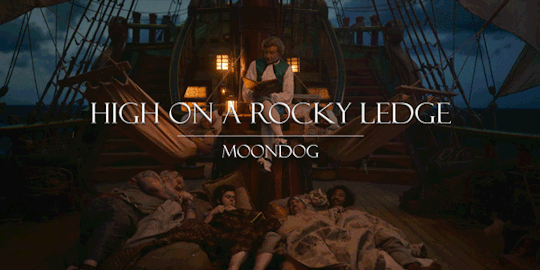


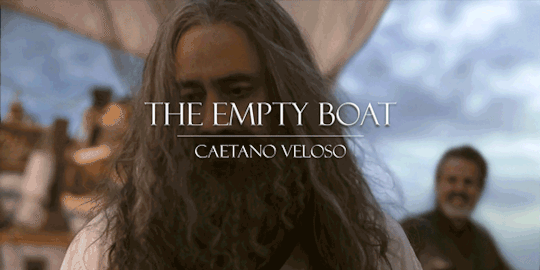

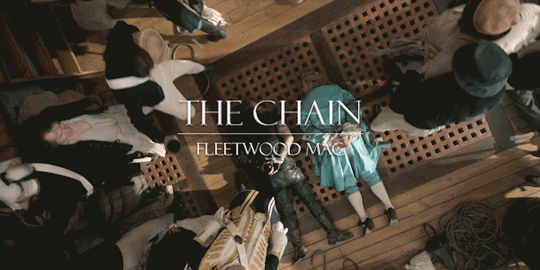


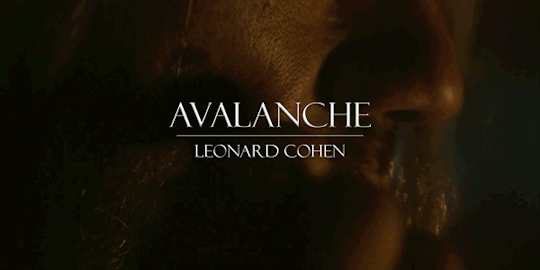

High On a Rocky Ledge - Moondog
Messa da Requiem: Dies Irae - Giuseppe Verdi, Leipzig Radio Symphony Orchestra, Mdr Leipzig Radio Chorus, Giuseppe Patanè
Our Prayer - The Beach Boys
The Empty Boat - Caetano Veloso
Cobra - Bailey's Nervous Kats
The Chain - Fleetwood Mac
Gnossiene No. 5 - Erik Satie
Perfect Day - Lou Reed
Avalanche - Leonard Cohen
Miles from Nowhere - Cat Stevens
Part 2:
#the music in this show is so good#i play it on repeat every day#especially the chain - the whole scene is just iconic#tumblr ate the gif quality#our flag means death#ofmd#blackbonnet#blackstede#gentlebeard#my post
3K notes
·
View notes
Text
0 notes
Text
Peter Schreier, 84, Elegant German Tenor Who Also Conducted, Dies
Mr. Schreier’s involvement with conducting, which began around 1970, was a natural extension of his approach to singing, especially his feeling for “instrumental singing,” as he described it in a 1997 interview with Bruce Duffie for WNIB, a former classical music radio station in Chicago.
“Bach treats the voice like a musical instrument,” Mr. Schreier said. “Instrumental singing means using the voice with a little bit of vibrato, like an oboe or a flute.” Bach, he added, is “very precise in how to phrase and articulate” the vocal parts. His goal of inculcating that articulate, verbally alert approach to singing inspired Mr. Schreier to conduct these scores.
A 1985 New York Times review of his recording, as a conductor, of the “St. Matthew Passion” praised Mr. Schreier for respecting the work’s “natural equilibrium” by allowing dance rhythms to abound and giving full range to bursts of “theatrical ferocity.”
Peter Max Schreier was born on July 29, 1935, in Meissen, a town in eastern Germany. His father, a church cantor, gave him his first music lessons. At 8 he entered the preparatory division of the Dresdner Kreuzchor, the boys’ choir of the main Lutheran church in Dresden; he remained a member of the choir for several years, even after his voice broke.
In 1954 he began private voice lessons in Leipzig while singing in the Leipzig Radio Chorus. Two years later, at 21, he entered the Dresden State Opera’s training academy where he studied singing and conducting. After graduating in 1959, he joined the company as a tenor.
His career grew steadily, with performances in leading houses of Europe in operas by Rossini, Massenet, Strauss and, especially, Mozart. He was highly esteemed as Prince Tamino in Mozart’s “Die Zauberflöte,” the role in which he made his 1967 Metropolitan Opera debut, though he appeared only eight times in all with that company. Several of his important roles are captured on classic recordings with Karl Böhm, Colin Davis and other major conductors.
Sahred From Source link Arts
from WordPress http://bit.ly/2thkNHG via IFTTT
0 notes
Video
youtube
Richard Wagner "Tristan Und Isolde" | Carlos Ludwig Kleiber
Richard Wagner - Tristan and Isolde, Complete Opera, WWV 90. Staatskapelle Dresden, Carlos Ludwig Kleiber. Deutsche Grammophon, 1982. Act I. Prelude http://youtu.be/l25J7xdhhKc Act III. Liebestod http://youtu.be/YjMwDbFng_g Complete Opera http://youtu.be/SF4zN-Okonc "ACT ONE Prelude At sea, on the deck of Tristan's ship during the crossing from Ireland to Cornwall." Friedrich Nietzsche, who in his younger years was one of Wagner's staunchest allies, wrote that, for him, "Tristan and Isolde is the real opus metaphysicum of all art. . . insatiable and sweet craving for the secrets of night and death. . . it is overpowering in its simple grandeur". In a letter to his friend Erwin Rohde in October 1868, Nietzsche described his reaction to Tristan's Prelude: "I simply cannot bring myself to remain critically aloof from this music; every nerve in me is atwitch, and it has been a long time since I had such a lasting sense of ecstasy as with this overture". Even after his break with Wagner, Nietzsche continued to consider Tristan a masterpiece: "Even now I am still in search of a work which exercises such a dangerous fascination, such a spine-tingling and blissful infinity as Tristan — I have sought in vain, in every art." Tristan und Isolde is an opera, or music drama, in three acts by Richard Wagner to a German libretto by the composer, based largely on the romance by Gottfried von Straßburg. It was composed between 1857 and 1859 and premiered in Munich on 10 June 1865 with Hans von Bülow conducting. Wagner referred to the work not as an opera, but called it "eine Handlung" (literally a drama. a plot or an action), which was the equivalent of the term used by the Spanish playwright Calderón for his dramas. Wagner's composition of Tristan und Isolde was inspired by his affair with Mathilde Wesendonck and the philosophy of Arthur Schopenhauer. Widely acknowledged as one of the peaks of the operatic repertory, Tristan was notable for Wagner's advanced use of chromaticism, tonality, orchestral colour and harmonic suspension. The opera was profoundly influential among Western classical composers and provided inspiration to composers such as Gustav Mahler, Richard Strauss, Karol Szymanowski, Alban Berg and Arnold Schoenberg. Many see Tristan as the beginning of the move away from conventional harmony and tonality and consider that it lays the groundwork for the direction of classical music in the 20th century. It was only after Ludwig II of Bavaria became a sponsor of Wagner (he granted the composer a generous stipend and in other ways supported Wagner's artistic endeavours) that enough resources could be found to mount the premiere of Tristan und Isolde. Hans von Bülow was chosen to conduct the production at the Munich Opera, despite the fact that Wagner was having an affair with his wife, Cosima von Bülow. A lot of ink has been spilled about child prodigies like Mozart, but little attention has been paid to the phenomenon of the late bloomer. Clearly Wagner belongs to the latter group: had he died at 50, with the premiers of Tristan, Meistersinger, the Ring, and Parsifal before him, he would be considered only a musical middleweight. Tristan marks his first fully mature work and establishes Wagner as a composer of the first rank. This digital recording from the early 1980s features a good, experienced cast. Rene Kollo is nearing the end of his effective career, but turns in a workmanlike performance, while Margaret Price sounds fresh and young. During his career, Maestro Carlos Kleiber has not competed with Herbert von Karajan or Georg Solti in the number of his recordings, but the quality of his output has always been among the best, and here he offers an exceptionally delicate orchestral reading. Tristan: René Kollo, Isolde: Margaret Price, Brangäne: Brigitte Fassbaender, König Marke: Kurt Moll, Kurwenal: Dietrich Fischer-Dieskau, Melot: Werner Götz, Seemann Eberhard Büchner, Hirte: Anton Dermota, Steuermann: Wolfgang Hellmich, Dresden Staatskapelle, Leipzig Radio Chorus Dame Margaret Price was persuaded to sing Isolde for a recording under German conductor Carlos Kleiber. The result, made up from several takes, is one of the most outstanding recorded Isoldes. Efforts to tempt Price to do Isolde on the stage, however, never came to anything. "I'm not a long-distance runner," she insisted. "I'll sing it to my dogs." The Guardian
0 notes
Text
February 18 in Music History
1632 Birth of Italian composer Giovanni Battista Vitali in Bologna.
1655 Birth of Italian stringed instrument craftsman Pietro Giovanni Guarneri. 1716 Birth of Swiss composer Gaspard Fritz. 1735 The first opera performed in America, known as either Flora or Hob in the Well, was presented in Charleston, SC. 1743 FP of Handel's oratorio Samson at Covent Garden, London, with great success. Runs eight performances. 1745 Death of Italian composer Nicola Fago, at 67. 1751 Birth of composer Karl Haack. 1770 Birth of German composer Johann Christian Heinrich Rinck in Elgersberg. 1790 Death of composer Wilhelm Gottfried Enderle, at age 67. 1799 Death of composer Maurus Haberhauer, at age 52.
1806 Death of soprano Brigitta Banti-Giorgi.
1807 Publication of Beethoven's Appassionata, f minor Piano Sonata, No 23, Op 57.
1818 Birth of soprano Marianna Barbieri-Nini in Florence.
1819 Birth of composer Joseph Philbrick Webster. 1829 Death of composer Jan Krtitel Kuchar, at 77. 1833 Death of composer Georg Johann Schinn, at 64. 1833 Death of composer Ignac Ruzitska, at 55. 1841 Birth of composer Samuel Prowse Warren. 1846 Death of composer Giovanni Liverati, at 73. 1850 Birth of German baritone, composer, conductor George Henschel.
1860 FP of The final, seven-movement version of Brahms’ A German Requiem with Carl Reinecke conducting the Gewandhaus Orchestra and Chorus in Leipzig.
1874 FP of N. Rimsky-Korsakov's Symphony No. 3, in St. Petersburg.
1880 Birth of American organist, conductor, composer and music critic Eric De Lamarter.
1882 Birth of soprano Berta Kiurina in Linz.
1885 Death of English contralto and composer Charlotte Helen Sainton-Dolby, at 61.
1893 FP of Hector Berlioz's opera La Damnation de Faust in Monte Carlo.
1895 FP of Charles Martin Loeffler's Quintet for three violins, viola, and cello, by the Kneisel Quartet joined by violinist William Kraft at Union Hall, Boston.
1915 Birth of French composer Marcel Landowski in Prêt L'Abbé, Finistère. 1915 Birth of Flemish pianist and composer David van de Woestijne.
1916 FP of Daniel Mason's First Symphony. Philadelphia Orchestra.
1917 Birth of mezzo-soprano Eva Gustavson in Horten, Norway.
1917 Death of baritone Vaclav Anton.
1919 Birth of tenor Georges Athana in Saloniki.
1919 FP of Deems Taylor's Through The Looking Glass. NY Chamber Music Society.
1922 Death of mezzo-soprano Marie Goetze.
1923 Birth of mezzo-soprano Isabella Andreani in Corsica.
1924 Death of tenor Victor Capoul.
1927 First broadcast by Singer Jessica Dragonette, on radio’s Cities Service Concerts.
1928 Birth of Belgian mezzo-soprano Rita Gorr. 1930 Birth of Canadian pianist and composer Andre Mathieu. 1931 Birth of composer Dieter Schonbach.
1933 Birth of soprano Bella Jasper.
1934 Birth of Italian conductor Aldo Ceccato, in Milan. 1939 Birth of Polish conductor Marek Janowski. 1939 Birth of Brazilian composer Marlos Nobre in Recife. 1939 Death of composer Ludwig Bonvin, at age 89. 1943 Birth of American composer Alice Shields in NYC.
1946 FP of Gian Carlo Menotti's opera The Medium, at Columbia University in NYC.
1947 FP of Gian Carlo Menotti’s opera The Telephone. New York Ballet Society. 1951 Birth of American composer Donald Crockett in Pasadena, CA.
1952 FP of Prokofiev's Sinfonia Concertante, Op. 125 with Sviatoslav Richter conducting and Mstislav Rostropovich the soloist in Moscow.
1955 FP of Howard Hanson's Symphony No. 5 Sinfonia Sacra. Philadelphia Orchestra, Eugene Ormandy conducting.
1956 Death of French composer Gustave Charpentier, in Paris. 1959 Death of Romanian composer Alfred Alessandrescu, at 65. 1959 Death of Austrian composer Eric Zeisl, at age 53 in Los Angeles, CA. 1959 Death of composer Jaroslav Kvapil, at 66. 1964 Birth of American composer John Bisharat.
1965 FP of Alberto Ginastera's Harp Concerto. Nicanor Zabaleta with the Philadelphia Orchestra, Eugene Ormandy conducting.
1966 Death of composer Casimir von Paszthory, at 79. 1967 Death of composer Manuel Palau Boix, at 74.
1985 Death of tenor Willy Alberti.
1985 Death of Hungarian composer Gábor Darvas in Budapest.
1987 Death of Russian composer Dmitri Kabalevsky at age 82, in Moscow.
1997 Death of English musicologist Eric William Fenby. 1997 Death of French-American conductor and musicologist Antonio de Almeida.
1998 FP of Thea Musgrave's Phoenix Rising. BBC Symphony, Andrew Davis conducting at Royal Festival Hall in London.
2 notes
·
View notes
Text
April 22 in Music History
1658 Birth of Italian composer Giuseppe Torelli in Verona.
1723 J. S. Bach becomes music director and cantor at St. Thomas church in Leipzig. Was their third choice.
1749 FP of J. P. Rameau's opera-ballet Naïs in Paris.
1757 Birth of composer Alessandro Rolla.
1776 Death of German composer Johann Adolf Scheibe.
1776 Death of castrato and composer Filippo Finazzi near Hamburg.
1818 Birth of German critic, composer Ferdinand Gumbert in Berlin.
1850 Birth of French-American soprano Fides Devries in New Orleans, LA.
1860 Birth of tenor Alex Ritter von Bandrowski in Lubackzov, Galatia.
1868 Birth of Spanish composer José Vianna da Motta.
1872 Birth of German bass Rudolf Moest in Karlsruhe.
1874 FP of Thomas' "Gille et Gillotin" in Paris.
1875 Birth of Swedish soprano Ida Ekman.
1875 FP of Offenbach's "Les Hannetons" in Paris.
1876 FP in US America of Tchaikovsky's Romeo and Juliet Fantasy-Overture. New York Philharmonic, Leopold Damrosch conducting.
1880 Birth of German baritone Guido Schutzendorf.
1884 Birth of German tenor Carl Clewing in Schwerin. 1885 FP of Antonin Dvorák's Symphony No. 7. Royal Philharmonic conducted by the composer, in London.
1890 FP of Cowen's "Thorgrim" in London.
1892 Death of French composer Eduard Lalo in Paris, age 69. 1899 Birth of English baritone Martyn Green. 1903 Birth of Italian bass Eraldo Coda in Biella.
1906 Birth of English composer, writer and Delius scholar, Eric Fenby.
1909 Death of German singing teacher Julius Hey.
1912 Birth of English contralto Kathleen Ferrier in High Walton.
1912 FP of Paul Dukas' ballet La Péri in Paris.
1912 FP of De Lara's "Naïl" in Paris.
1912 FP of Mary Moore's "Narcissa, or the Cost of Empire" in Seattle.
1916 Birth of American violinist Yehudi Menuhin in NYC.
1919 Birth of Latvian composer Talivaldis Kenins.
1921 FP of the Koussevitzky Concerts organized and conducted by Russian conductor and music patron Serge Koussevitzky in Paris.
1922 Final performance by Geraldine Farrar at the MET in NYC in Leoncavallo's 'Zaza. 1924 Birth of Austrian bass-baritone Franz Mazura in Salzburg.
1925 Death of tenor Bela Kornyei.
1925 Death of French composer André Caplet age 46, in Paris.
1926 Birth of American composer Robert Hall Leweis in Portland, ME.
1926 Birth of Hungarian tenor Lajos Pasztor in Budapest.
1926 Birth of French bass Xavier Depraz.
1926 FP of Gurlitt's "Wozzeck" in Bremen.
1927 FP of Roger Sessions' Symphony No. 1 in e. Boston Symphony with Serge Koussevitzky conducting.
1932 Birth of American composer Michael Colgrass in Chicago. 1935 Birth of Italian contralto and mezzo-soprano Fiorenza Cossotto.
1935 Birth of American bass Richard Best in Chicago.
1938 FP of Leo Sowerby's Organ Concerto. Boston Symphony, Serge Koussevitzky conducting.
1939 FP of Gian Carlo Menotti's opera The Old Man and the Thief an NBC radio broadcast in NYC.
1941 Birth of Russian mezzo-soprano Galina Borisova in Moscow.
1942 FP of Farkas' "The Magic Cupboard" in Budapest.
1944 FP of Harry Partch's Eight Hitchhiker Inscriptions from a Highway Railing. Carnegie Hall, NYC.
1944 Birth of American conductor, pianist, and musicologist Joshua Rifkin. 1947 Death of French tenor Charles Friant.
1948 FP of Morton Gould's Fall River Legend. American Ballet Theater in NYC. 1953 Death of baritone Max Davison.
1956 Birth of Finnish conductor Jukka-Pekka Sarasate.
1960 Birth of Australian soprano Cheryl Barker in Sydney.
1961 FP of Alberto Ginastera's Piano Concerto No. 1, in Washington, D.C.
1966 Birth of Chinese-Canadian composer Melissa Hui in Hong Kong.
1967 Birth of American composer Brian Nelson in Madison, WI.
1967 FP of Alan Hovhannes' "The Travelers" in Los Altos Hills, CA.
1969 FP of Peter Maxwell Davies' Eight Songs for a Mad King in London.
1978 Death of Mexican bass-baritone Friedrich Ginrod.
1989 FP of Leonard Bernstein's Arias and Barcarolles. Louise Edeiken, Joyce Castle, John Brandstetter, and Mordechai Kaston. Bernstein and Michael Tilson Thomas at the piano, at Equitable Center Auditorium in NYC.
1999 FP of George Harbison's Four Psalms. Vocalists Lisa Saffer, Lorraine Hunt, Frank Kelley, and James Maddalena and the Chicago Symphony and Chorus, Christoph Eschenbach conducting.
2001 Death of American composer, pianist, and author Robert Starer.
2001 Final performance of the Philharmonia Hungarica in Düsseldorf.
1 note
·
View note
Text
W.A. Mozart
Radio Chorus Leipzig, Male Chorus, Raphael Alpermann - 'Lasst uns mit geschlun'nen Handen', K623a
[W.A. Mozart]
0 notes